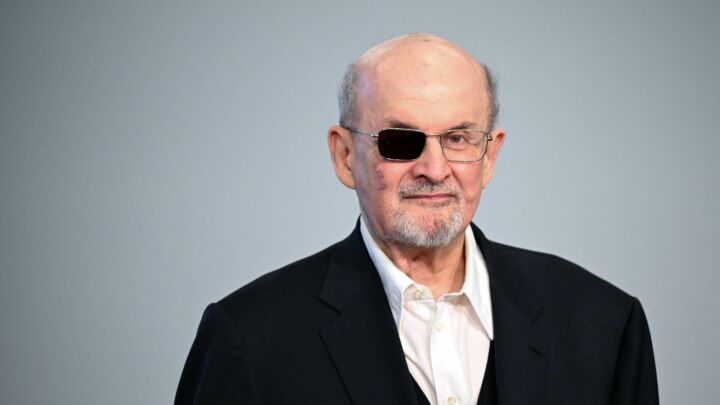Falling out over nothing at all
It isn’t profound political differences but rather petty personality clashes that are splitting the Lib-Cons.

‘Lords reform and boundaries are two, separate parliamentary bills but they are both part of a package of overall political reform. Delivering one but not the other would create an imbalance – not just in the coalition agreement, but also in our political system.’
Could there be any greater insight into the warped, insular political mind of deputy prime minister Nick Clegg – or, indeed, Lib-Con coalition politics as a whole? After having officially to announce that House of Lords reform is dead in the water last week, Clegg took the tit-for-tat approach of sinking the Tories’ plans for boundary reform in the name of restoring balance. (Does he think this is politics, or Star Wars?) Clegg justified his decision to instruct Lib Dems to vote against any boundary reforms by arguing that ‘an elected House of Lords was part of the coalition agreement… A contract not just to each other, but a set of commitments we have made, collectively, to the British people.’
Pull the other one, Clegg. The coalition agreement was never a ‘commitment to the British people’; rather, it was a fudge of a compromise thrown together behind closed doors following the hung parliament in May 2010. The public didn’t get to express their approval of the agreement; it was always a case of like it or lump it.
In making the failure of Lords reform a big issue, Clegg – and his Liberal Democrat party as a whole – seems to be desperately clinging to it as a way of signifying a big political divide between the two ruling parties. Yet, in truth, no such division exists between the ideology-free top tiers of the political classes. Indeed, as Clegg himself points out, both coalition partners had House of Lords reform in their election manifestos. Lords reform is no great ideological marker – and it is certainly not something that is seen to be a pressing public concern. Nor, of course, is the issue of boundary reform, which is being driven through merely to benefit the Tories’ re-election prospects, with little regard to whether such changes are in the public interest.
So the coalition currently lies in tatters over an issue that means little to anyone outside of the blinkered world of the political elite. Only seven per cent of the public believes Lords reform to be of pressing concern, and even 75 per cent of Lib Dem supporters told an Ipsos Mori poll that, ‘There are more important things that the government should be concentrating on’. These tit-for-tat exchanges appear to the wider world like petty, infantile squabbles. Not least because there are many serious issues of public concern where a genuine clash of ideas is much needed.
For example, last week, the Bank of England announced that it was cutting its growth forecast for 2012 from 0.8 per cent to zero growth, meaning the UK’s double-dip recession could last far longer than initially expected. But the coalition is not falling out over competing visions for growth; it is not being torn asunder by arguments over how to deal with the crisis. In fact, that’s an area where, like Lords reform, the coalition is also broadly in agreement – all its senior members have willingly signed up to a programme of austerity measures. As culture secretary Jeremy Hunt put it following the bickering over Lords reform: ‘There isn’t a cigarette paper between us on [economic policy].’ While Lib Dem business secretary Vince Cable has recently said he fancies himself as chancellor, what is far from evident is what he’d do differently should he inherit the purse strings.
The dreadful economic forecast is a perfect opportunity, one might think, for the Labour opposition to make political hay through a serious critique of the coalition’s economic and fiscal policies. Yet Labour’s existing tactic appears to amount to little more than gloating and harping about the coalition’s ‘spectacular failures’, as if all Labour needs to do is to wait for the coalition partners to become so unelectable that its no-mark leader Ed Miliband and his unimpressive coterie can replace them by default.
Despite a recent poll that suggested only 16 per cent of the UK public think the coalition will last until 2015 – a finding that has given heart to Labour supporters and commentators – there is a will in both Lib Dem and Conservative camps to continue to muddle through. After all, with the Lib Dems facing electoral wipeout, and the Tories confronting another stint in opposition given current polls, neither party is likely to find an imminent election appealing. Before they both left for holiday, Cameron and Clegg met for a ‘clear-the-air dinner’ and agreed to work together to prioritise ‘the economy and fiscal policy’ upon their return.
With barely a ‘cigarette paper’ between them on the economy – and on many other issues – the coalition may well continue in the same vein as before: tactically wheeling and dealing when it comes to policies, but continuing to cling together for survival. And while it continues down this narrow road, it will become ever-more estranged from a public that never voted for it in the first place.
To enquire about republishing spiked’s content, a right to reply or to request a correction, please contact the managing editor, Viv Regan.







Comments
Want to join the conversation?
Only spiked supporters and patrons, who donate regularly to us, can comment on our articles.